
AVIM
21.01.2015
In response to Turkish President Recep Tayyip Erdoğan’s invitation for the commemoration ceremonies of the 100th anniversary of the Battle of Gallipoli, Armenian President Serzh Sargsyan issued a letter on the official website of the President of the Republic of Armenia. In his letter, President Sargsyan declined the invitation of President Erdoğan. This letter was widely circulated in the Armenian, Turkish and international press.
In this letter, President Sargsyan’s replicates the clichés of the widespread Armenian political discourse. He demands to “pass on an authentic and genuine history to the next generations”. However, his claims in this letter fail to honor his very own petition.
President Sargsyan refers to “an artilleryman of Armenian descent, Captain Sargis Torosyan”, who “joined the troops of the Ottoman Empire in the Battle of Gallipoli”. According to Sargsyan, Captain Torosyan was “an officer, dedicated to the defense and security of the Empire, who was decorated with Ottoman military awards for his loyalty and heroism”.
President Sargyan takes this ‘story’ from the memoir of Torosyan first published in 1947 in the USA with the title From Dardanelles to Palestine: A True Story of Five Battle Fronts of Turkey and Her Allies and a Harem Romance. It is obvious that President Sargsyan refers to this memoir to render his response more impressive since this book was also published in Turkish in 2012.
It is also apparent that, President Sargsyan gave much and undue credit to the phrase “A True Story” in the title of this book without paying attention to the scholarly debates that this book initiated. Probably, he did not feel a need for that since Captain Torosyan’s ‘story’ was serving his purpose.
President Sargsyan would be well-served to be reminded that the falsehood of Torosyan’s “true story” has already been an established fact. Historians, who even at the first sight could see the contradictions in those ‘truths’ conducted a research on the reliability of this memoir and eventually came to the consensus to dismiss it as a fabricated narrative. President Sargsyan’s hold on to a fabricated narrative demonstrates his interpretation of “authentic and genuine history”. His coloring of Torosyan provides us with insights about his understanding of patriotism and loyalty.
President Sargsyan in his response letter also writes:
According to you, the Battle of Gallipoli offers a unique example for both Turkey and the World as an illustration of friendship born out of war, and the battlefield, reminding of the bitter heritage of war, stands as an eternal monument to peace and friendship.
He continues by bringing up “the well-known meaning of the Battle of Gallipoli”. Although, it is difficult to grasp what President Sargsyan implies with these words, given the possibility that President Sargsyan had not understand the meaning that Mustafa Kemal Atatürk and the people of Turkey attach to the Battle of Gallipoli, we would like to quote Mustafa Kemal Atatürk’s well-known message to the fallen Anzac soldiers at Gallipoli and their families.
Those heroes that shed their blood and lost their lives…
You are now living in the soil of a friendly country therefore rest in peace.
There is no difference between the Johnnies and the Mehmets to us where they lie side by side here in this country of ours…
You, the mothers, who sent their sons from faraway countries wipe away your tears; your sons are now lying in our bosom and are in peace.
After having lost their lives on this land they have become our sons as well.
President Sargsyan speaks of “the questionable role of Turkey in World War I and World War II” without clarifying what he means. The role of Turkey (Ottoman State, to be exact) in the World War I was exactly the same of the roles of the other states that involved in this war. What is questionable as regards to the World War I is indeed the role of the Armenian fedayees (guerilla fighters) and Armenian soldiers in the Russian army fighting the Ottoman army in the eastern front.
Turkey did not take part and never saw combat in World War II. The role of Turkey in the World War II was nothing but an excellent diplomacy to protect its citizens from the evils of the war. Armenia would be well advised to draw lessons from this episode of the Turkish history.
President Sargsyan urges Turkey to have the courage “to confront the past, on the historical justice, as well as on recognition of full-fledged universal memory but never on selective approach”. We wish the same for President Sargsyan. We wish President Sargsyan could have the courage to rebuff the delusive numbers such as “1.5 million” asserted by historians-as-propagandists as regards to the Armenian causalities in the World War I. Besides, we wish President Sargsyan had knowledge of methodology of historical research, difference between history and memory, and reliable and valid documents and fabricated memoirs. We wish President Sargsyan had awareness of what scholars of social memory commonly accept; social memory is never universal but always subjective and framed as regards to the present-day context.
© 2009-2025 Center for Eurasian Studies (AVİM) All Rights Reserved
No comments yet.
-
“STRATEGIC VISION” AWARD TO AVIM
AVİM 24.09.2013 -
 BIASED COVERAGE OF THE OTTOMAN EMPIRE IN WWI AND THE 1915 EVENTS
BIASED COVERAGE OF THE OTTOMAN EMPIRE IN WWI AND THE 1915 EVENTS
AVİM 11.10.2024 -
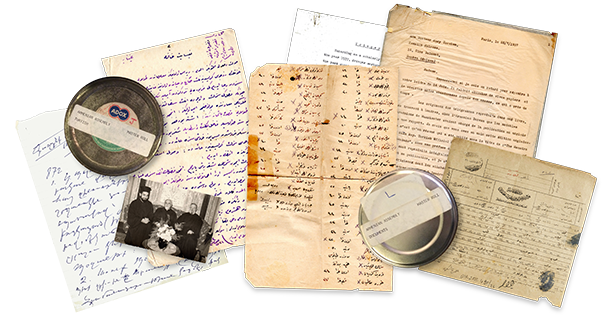 ACADEMIC ETHICS AND ARCHIVES: THE KRIKOR GUERGUERIAN ARCHIVE ADDS LITTLE NEW TO THE DEBATE
ACADEMIC ETHICS AND ARCHIVES: THE KRIKOR GUERGUERIAN ARCHIVE ADDS LITTLE NEW TO THE DEBATE
AVİM 07.02.2019 -
 VAHAN CARDASHIAN AND THE CRUSADE TO SABOTAGE TURKISH-AMERICAN RELATIONS
VAHAN CARDASHIAN AND THE CRUSADE TO SABOTAGE TURKISH-AMERICAN RELATIONS
AVİM 29.05.2024 -
 A NEVER-ENDING FICTIONAL NARRATIVE: ARMENIANS OF MUSA DAGH
A NEVER-ENDING FICTIONAL NARRATIVE: ARMENIANS OF MUSA DAGH
AVİM 24.09.2025
-
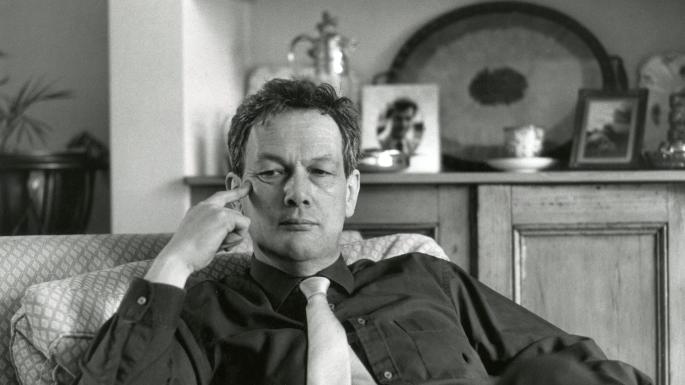 BIASED DISPARAGEMENT OF THE LATE NORMAN STONE BY TWO BRITISH DAILIES
BIASED DISPARAGEMENT OF THE LATE NORMAN STONE BY TWO BRITISH DAILIES
AVİM 16.07.2019 -
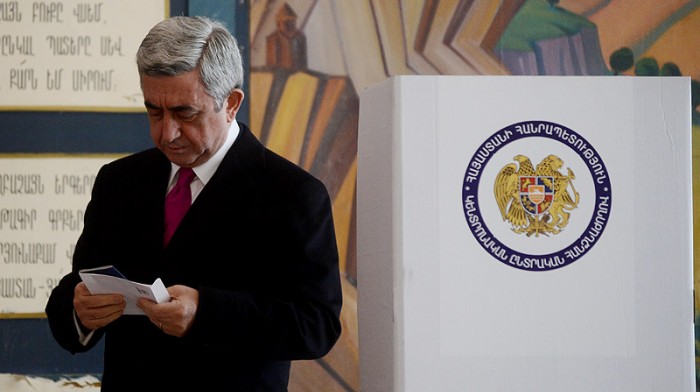 PARLIAMENTARY ELECTIONS IN ARMENIA AND THE IRREGULARITIES TOLERATED BY THE EU
PARLIAMENTARY ELECTIONS IN ARMENIA AND THE IRREGULARITIES TOLERATED BY THE EU
Hazel ÇAĞAN ELBİR 18.04.2017 -
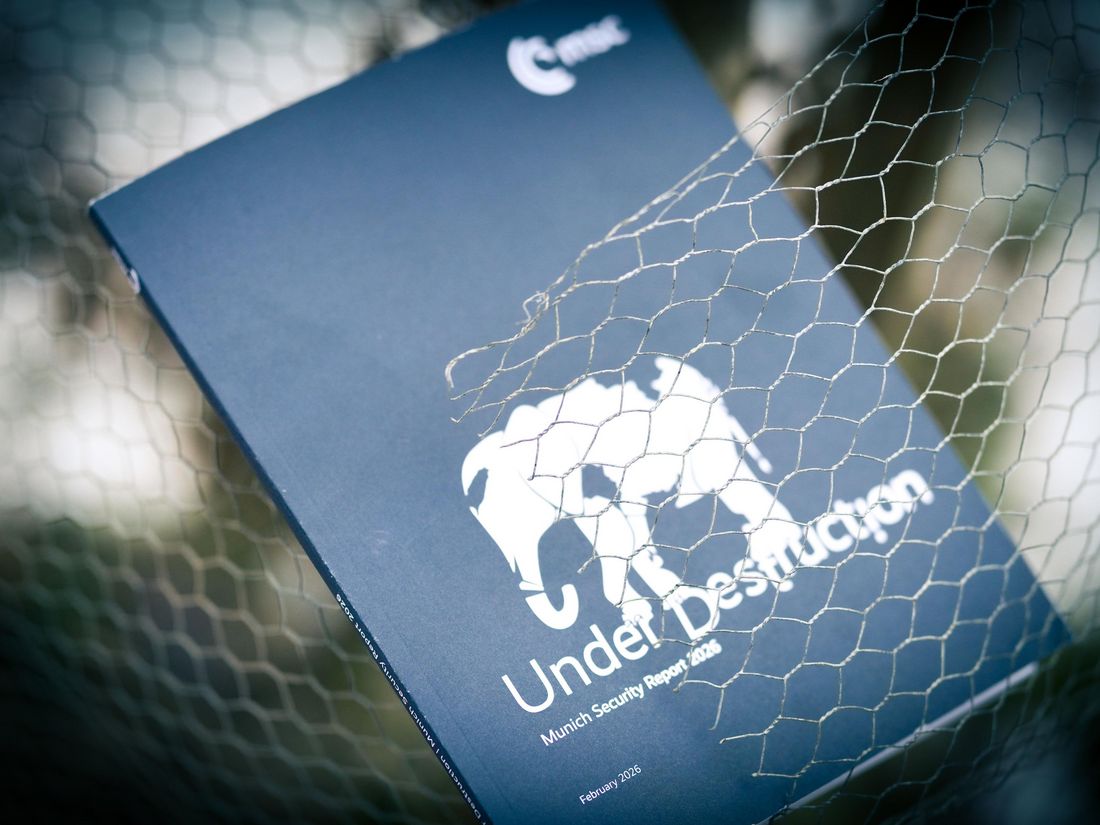 THE MYTH OF RULES-BASED INTERNATIONAL ORDER IS UNDER DESTRUCTION
THE MYTH OF RULES-BASED INTERNATIONAL ORDER IS UNDER DESTRUCTION
Teoman Ertuğrul TULUN 13.02.2026 -
 ON THE ISSUE OF ARMENIAN EXTREMIST NATIONALIST TERROR ORGANIZATIONS DISGUISING THEMSELVES AS POLITICAL PARTIES AND USING STATEMENTS AS AN INSTRUMENT OF PROPAGANDA
ON THE ISSUE OF ARMENIAN EXTREMIST NATIONALIST TERROR ORGANIZATIONS DISGUISING THEMSELVES AS POLITICAL PARTIES AND USING STATEMENTS AS AN INSTRUMENT OF PROPAGANDA
Hazel ÇAĞAN ELBİR 25.02.2025 -
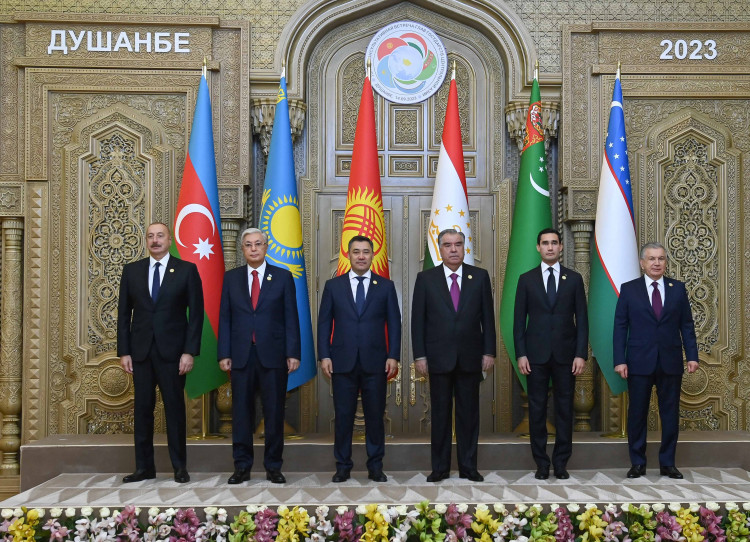 THE FIFTH CONSULTATIVE MEETING OF HEADS OF STATE OF CENTRAL ASIA
THE FIFTH CONSULTATIVE MEETING OF HEADS OF STATE OF CENTRAL ASIA
Gülperi GÜNGÖR 29.09.2023
-
25.01.2016
THE ARMENIAN QUESTION - BASIC KNOWLEDGE AND DOCUMENTATION -
12.06.2024
THE TRUTH WILL OUT -
27.03.2023
RADİKAL ERMENİ UNSURLARCA GERÇEKLEŞTİRİLEN MEZALİMLER VE VANDALİZM -
17.03.2023
PATRIOTISM PERVERTED -
23.02.2023
MEN ARE LIKE THAT -
03.02.2023
BAKÜ-TİFLİS-CEYHAN BORU HATTININ YAŞANAN TARİHİ -
16.12.2022
INTERNATIONAL SCHOLARS ON THE EVENTS OF 1915 -
07.12.2022
FAKE PHOTOS AND THE ARMENIAN PROPAGANDA -
07.12.2022
ERMENİ PROPAGANDASI VE SAHTE RESİMLER -
01.01.2022
A Letter From Japan - Strategically Mum: The Silence of the Armenians -
01.01.2022
Japonya'dan Bir Mektup - Stratejik Suskunluk: Ermenilerin Sessizliği -
03.06.2020
Anastas Mikoyan: Confessions of an Armenian Bolshevik -
08.04.2020
Sovyet Sonrası Ukrayna’da Devlet, Toplum ve Siyaset - Değişen Dinamikler, Dönüşen Kimlikler -
12.06.2018
Ermeni Sorunuyla İlgili İngiliz Belgeleri (1912-1923) - British Documents on Armenian Question (1912-1923) -
02.12.2016
Turkish-Russian Academics: A Historical Study on the Caucasus -
01.07.2016
Gürcistan'daki Müslüman Topluluklar: Azınlık Hakları, Kimlik, Siyaset -
10.03.2016
Armenian Diaspora: Diaspora, State and the Imagination of the Republic of Armenia -
24.01.2016
ERMENİ SORUNU - TEMEL BİLGİ VE BELGELER (2. BASKI)
-
AVİM Conference Hall 24.01.2023
CONFERENCE TITLED “HUNGARY’S PERSPECTIVES ON THE TURKIC WORLD"









